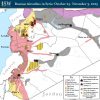Security as a key value in present-day societies
Security has always been an important value in traditional societies, but it has become a key value in present-day societies, both developed and less developed, particularly since the end of the Cold War. During that period most of the literature on security referred to national or state security because of the military (nuclear) balance between the two blocks. But when that period ended, the concept of security has been enlarged to encompass individual, societal, global and human security, as will be briefly discussed below.
As the 1994 Human Development Report (United Nations, 1994) points out, the concept of security has been related more to nation-states than to people, while for most people Human Security means being free from the threat of hunger, disease, unemployment, crime, social conflict, political repression and environmental hazards. But it also means protection from disruptions of daily life in homes, jobs and communities. For the authors of this report, Human Security is a universal concern whose components are interdependent that is more easily ensured by early prevention (through early warning indicators) rather than late intervention, and which is people-centred. Thus, the concept of security must change from territorial security to people security, from security based on armaments to security based on sustainable human development. The extension of the concept of Human Security must therefore include economic, food, health, environmental, personal, community and political security, to mention only some domains. At present, because of the globalisation process, security must also be global, and some of the threats to global security are unchecked population growth (world population will double in 50-60 years), disparities in economic opportunities (social and economic inequalities continue to increase, both within and between countries), migration pressures (as in the recent flows to Europe of people escaping hunger –in Sub-saharan Africa– or war and political repression –in Syria, Iraq, Libya and Afghanistan–), environmental degradation (climate change, polar melting), drug trafficking (organised crime and money laundering) and international terrorism (mainly Islamic). The emphasis on human security in contrast to state security has become very popular among scholars (Alkire, 2003; Rowley & Weldes, 2010).
The concept of security has evolved because of globalisation, because of the very important change in the world social environment. First, the city provided security to individuals, later the state provided security to its citizens, but at present the nation-state is incapable of providing it. That is the reason why most scholars, researchers and politicians are developing an interest in other instances that can provide individual and societal security. Bilgin (2003) has developed the concept of ‘common security’ to imply that security must be sought and maintained not against one’s adversaries but with them. This idea is similar to the concept of stable peace developed by Galtung (1969, 1996) and Boulding (1978). Galtung distinguishes between negative peace (the absence of war) and positive peace (based on the establishment of conditions for social justice), and he also distinguishes between direct violence (physical) and indirect violence (structural and cultural). And Boulding also advances that stable peace is not based on threat, and prefers the terms global or world security to international security, because the state (the main actor in international politics) is less and less able to provide security, which leads him to accept the concept of ‘risk society’ (Beck, 1999) to define present-day societies. Apart from that, Boulding makes a distinction between developed and less developed societies, in which that the latter face an ‘insecurity dilemma’ because they are more concerned by internal rather than external security.
Though it is widely accepted that there is a difference between national and international security, the fact is that both are very much interrelated because their relationship is ‘tightly connected to a political, legal and military framework that should allow for their manifestation without any conflicting standpoints’ (Ilie, 2012). And ‘the notion of borders is fading away and giving rise to the old notion of lines or fronts and regions (NAFTA, Schengenland)’ (Bigo, 2000), so that the concepts of internal and external security are merging into a new ‘field of security’, because both have the same enemy. For Bigo, liberty is not the limits of security but the condition of security, so that security is unlimited and needs to be global. […]
Professor Dr. Juan Díez-Nicolás
Universidad Europea de Madrid, ASEP



